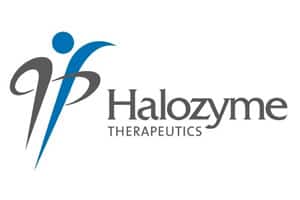
Halozyme Therapeutics has stopped its pivotal phase 3 study investigating its lead pancreatic cancer drug – and has announced a major restructuring of its workforce that has resulted in a 55% reduction of jobs.
The San Diego-based biotech has also cut its pipeline – the mass exodus will see all development of the drug, PEGPH20, halted. The company has also announced that it will close the entirety of its oncology operations.
As a direct result of this shift in focus, Halozyme has said it expects approximately 160 positions at the company will be cut. This move will see the company’s staff cut by more than half, with 80% of that reduction to be completed in early January 2020.
The biotech hopes that the cuts will aid in cost saving, estimating that it should save approximately $130m-$140m in the next year. It also said that it will become a ‘sustainably profitable’ company by the second quarter of 2020.
Halozyme initially halted the phase 2 trial of PEGPH20 in 2014, after fears were raised that the drug was associated with a greater risk of blood clots in patients. Early data had suggested that the rate of thromboembolic events was higher in the PEGPH20 arm compared to the placebo arm.
The FDA removed the hold on patient dosing two months after the phase 2 trial was halted, when Halozyme updated the trial to include a secondary primary endpoint to asses the thromboembolic event rate in patients receiving the investigational drug.
The phase 3 results are a blow for not only the biotech, but also for pancreatic cancer patients – this disease is notoriously hard-to-treat and more often than not has poor survival outcomes. PEGPH20 failed to reach the primary endpoint of improved overall survival in the late-stage trial and while there was a higher response rate in the treatment arm, this did not translate into an improvement in the duration of response.
There was no mention of the secondary primary endpoint of thromboembolic events, but this is unsurprising given the drug’s biggest failure to improve survival in study participants.
As part of the re-focus strategy, Halozyme will now wholly concentrate on its ENHANZE drug delivery technology, with its remaining 120 employees driving the growth of the business.
The ENHANZE technology is based on a proprietary recombinant human hyaluronidase enzyme (rHuPH20) that temporarily degrades hyaluronan – a chain of natural sugars in the body – to aid in the dispersion and absorption of injected therapeutics drugs.
“Our mission now is to transition our strategy to focus on our high-growth, high-margin ENHANZE drug delivery technology platform,” said Helen Torley, president and CEO of Halozyme.
“Our ENHANZE business is well positioned for this growth, supported by strong partnerships with leading brands and a promising development pipeline. As a result, Halozyme now has a clear path to near-term, sustainable profitability with strong cash flows and high growth prospects,” she added.
In 2015, AbbVie paid Halozyme nearly $1.2bn for the technology, with an initial $23m upfront. It covers up to nine targets with milestones of around $130m per target payable based on development, regulatory and sales-based events plus tiered royalties.




